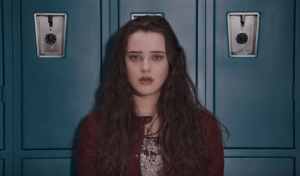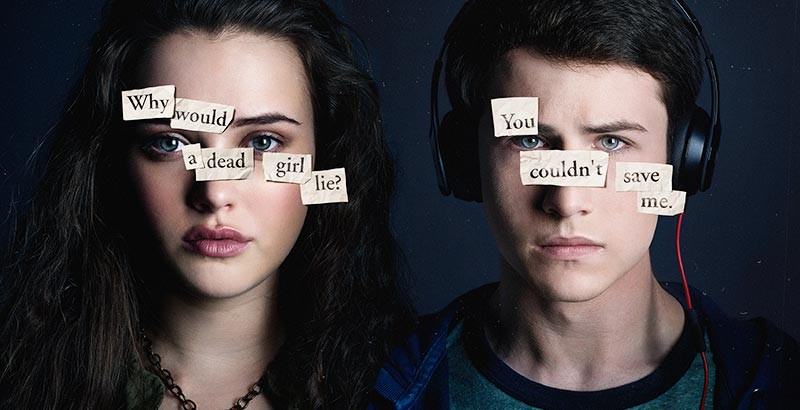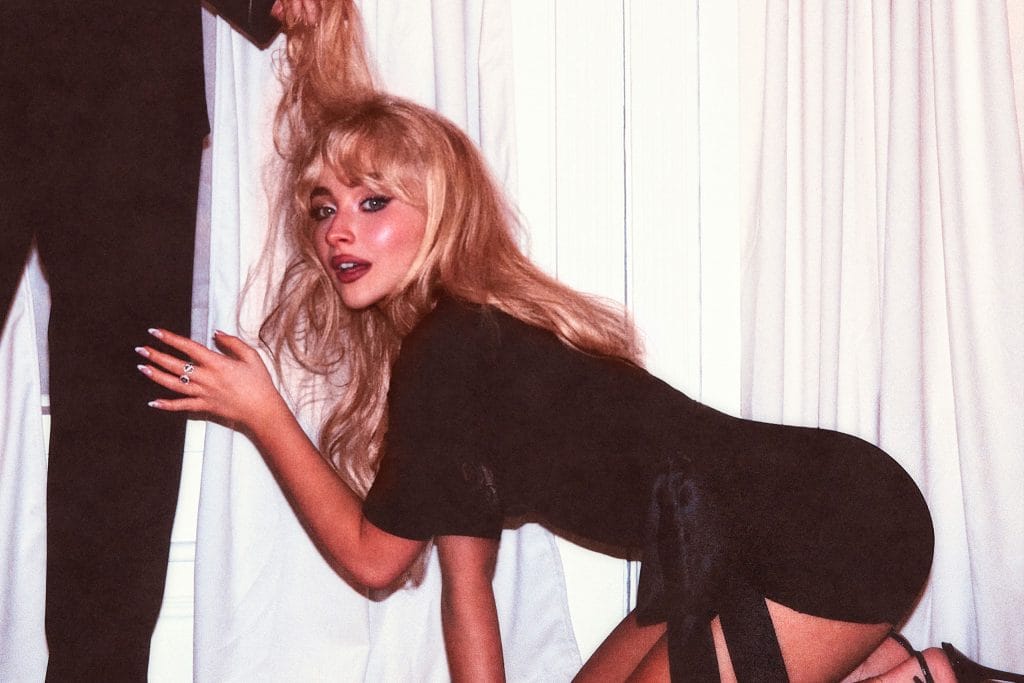13 Reasons Why is currently one of the most talked about shows on Netflix. Based on the bestseller by author Jay Asher, the show follows the lives of Hannah (Katherine Langford) and Clay (Dylan Minnette) before and after Hannah’s suicide respectively. The intensity of the plot made 13 Reasons Why become a phenomenon.
13 Reasons Why (2017)
Cast: Katherine Langford, Dylan Minnette, Kate Walsh, Alicia Boe
Created by: Brian Yorkey
Disclaimer: Spoilers Ahead. Trigger Warning: Rape, Suicide
https://www.youtube.com/watch?v=JebwYGn5Z3E
Hannah killed herself. The whole school is mourning her death and at the same time, spreading awareness surrounding teen suicide. The authorities started sending e-mails to the parents, persuading them to communicate better and have a steady relationship with their respective children. Clay, Hannah’s friend, is initially exasperated with the authorities and the “excess” concern from everyone in school and even his own mother. Quite ironically, a person had to die for there to be better suicide awareness in school. Despite the concern all around school, everyone is trying to wash their hands off of any involvement in Hannah’s death.
Then comes a day when Clay receives a package with tapes recorded by Hannah before her death. In the tapes she narrates the story of her life, announcing that if the person listening to the tape received the package then he or she is responsible for her suicide. And finally she starts narrating the 13 reasons why she chose to commit suicide.
The show comes with a disclaimer asking people with depression and suicidal thoughts not to watch it, as the graphic visuals of rape and suicide of Hannah might be too much to take for some.
Does the show glorify suicide? There have been a plethora of debates explaining how the show glorifies suicide. However, I feel that it completely depends on how we analyse the whole plot from an objective perspective. The show constantly tries to justify Hannah’s decision. This is quite problematic in itself because then, it steers away from Hannah’s mental health and limits itself to Hannah blaming her actions on others only.

Source: Metro
If we watch the whole show from Hannah’s perspective, then her angst and her isolation are reflected to the audience. Hannah is initially shown as a very bright and cheerful girl who is friendly with everyone around her. She becomes a victim of lust, jealousy and manipulation. She falls into depression bit by bit and the viewers grapple along with her as well. The show itself is quite depressive and leaves an overwhelming effect on the viewers, quite similar to the poignant scene where Hannah walks out in the rain, dejected and empty. Her loneliness is underscored by the students rushing out of class, ignoring her.
The show’s success lies in its initiation of a discussion on depression, mental health and suicide. It’s tremendous success has led to a 100% increase in calls to Brazil’s suicide hotline. Along with the disclaimers, hundreds of opinion polls and articles online are cautioning parents to look out for their children. The communication between parents and their teenage children has strengthened as according to various posts on Quora, in the US.
The second episode highlights a tagline, “Friendship is complicated“. Some friendships don’t end well while others last forever. Although Hannah is the victim of circumstance, we see how friendships have negative influences, like Justin covering up for Bryce because the latter helped him when no one was there. The show gives an insight on how major accidents could be avoided by correcting minor things like realising when to stand up for something or when to step aside. In Hannah’s case, it wasn’t just sexual assault which scarred her but social isolation, and the fear of a loss of dignity, which girls are socially conditioned to protect.
Many argued that it was wrong of Hannah to profile and pick out 13 of her classmates for her decision to commit suicide. I believe that opinions which argued that the show focuses on shifting the blame to a third person are correct. However, the viewer also has to keep in mind that the story intends to highlight how it was difficult for her to survive and how she faced injustice because of her gender and social ostracism.
Silly jokes like when Alex makes the list which said “best ass = Hannah Baker” as revenge against Jessica for not having sex with him, leave deep impressions on Hannah’s life. She later narrates about the same saying “You have never been a girl Alex, you will never understand“. The list then leads to Bryce molesting Hannah in a shop, calling it “open season” for Hannah, highlighting how men take women for granted and treat them disrespectfully.
Clay explains in several episodes that anyone among the 13 people involved in Hannah’s tapes could have saved her, which is why all 13 of them were included in the first place. Out of the 13 people who listened to the tapes, Clay, who is otherwise a shy young man but felt lively around Hannah, is the most affected. Unlike traditional gender stereotypes whereby boys are expected to be tough and masculine, we get to see a new side into the lives of teenagers through Clay. He is not the kind of person who impresses girls with fist fights or showing off. He stands up for what is right due to his sensitivity and compassion, facets that are never encouraged in boys in a society where gender is strictly treated as a binary. When he confronts Bryce by slapping him, in spite of getting beaten, Clay managed to record Bryce’s confession of raping Jessica and Hannah. The compassionate side of Clay is identified when he helps another suicidal student and encourages Jessica to open up about her assault but leaves her to decide that.
The casting of the show is brilliantly done. Each and every actor moulds themselves perfectly into their character. The brightness and the vulnerability in Hannah’s eyes has been beautifully enacted by Katherine Langford. The tension in Dylan’s facial expressions and the guilt amongst the 13 people involved in Hannah’s life are perfectly portrayed. I could feel the emotions of these characters and due to the spectacular acting, I could not brush away the intensity of the series and thus, I feel the creators have been successful in driving home the message.
The vividly graphic depiction of rape is what was highly controversial and problematic for the show. Jessica’s semi-conscious body is raped by Bryce while a terrified Hannah watches from inside the closet. The voyeuristic nature of the rape scene made it quite disturbing for the viewers to watch. The scene where Bryce assaults Hannah is even worse. She is pinned against the bathtub and the camera focuses on her face while Bryce assaults her. She is too depressed to fight back or scream. She is later shown, her body covered with fingerprints and bruises. Though author Jay Asher defended the scene, the depiction of graphic rape is something that needs to be debated. Several rape survivors admitted to the fact that they experienced anxiety attacks while watching the scene. Moreover, this theory about Mad Max: Fury Road explains clearly why graphic rape scenes are unnecessary to put across a message.
13 Reasons Why is quite depressing, though the cliffhangers at the end give us a ray of hope. For example, Clay finding happiness as he goes on with Tony and Skye, Bryce being prosecuted for raping Jessica and Hannah, Alex surviving his suicide and the school being more sensitive to the issues of bullying and mental health.
About the author(s)
Writer.






